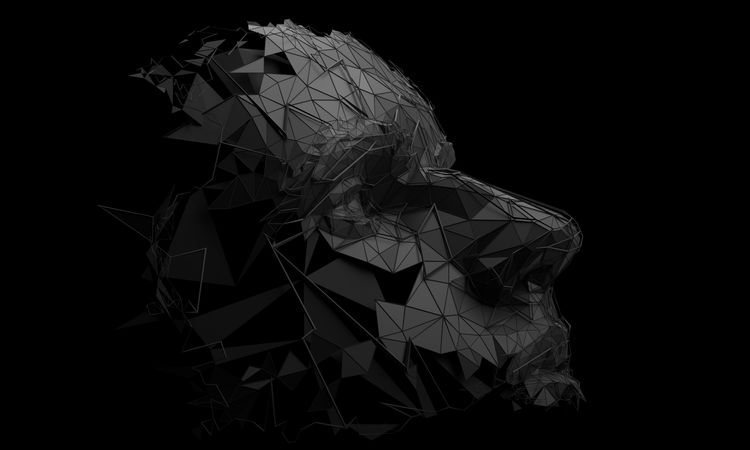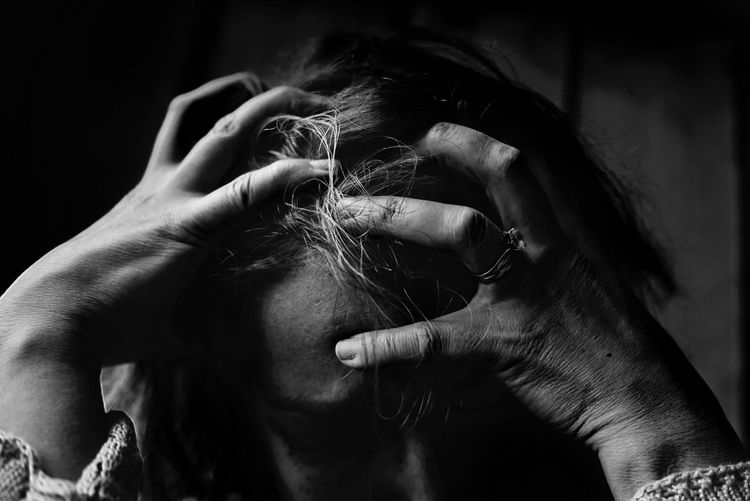You Are Not a Slave to Online Gurus, Philosophers, or Experts

Tell me if you’ve had this experience:
You’re in your car and you’re listening to a podcast. The guest says something that pisses you off. You can’t believe someone could say something so insane.
You want to reach through your speakers and strangle them. But all you can do is sit there and listen while the host says, “Wow, what a neat idea.”
Now the guest’s bad idea is stuck in your head, taking up your mental bandwidth. Exposing yourself to ideas you don’t agree with is not a bad thing, but letting it affect you for days is a different story. Information overload can wreak havoc on your mental health.
You might disagree with the people you listen to online, but you might not feel like you have the authority to argue with “experts.” This is a false and harmful belief. Here’s why:
Instead of Dismissing Experts, Do This
If someone makes a point, you can’t just ignore them and pretend their point doesn’t exist. However, that doesn’t mean that anyone has authority over you, especially when it’s someone telling you how you should live your life.
Here’s a made-up example:
A TEDx presenter is giving a speech about videogames and how damaging they are. They argue that video gaming in any capacity leads to depression, and that it is largely a waste of time. They provide statistics and data to back their claims.
You enjoy video gaming, and this bothers you. Now you feel guilty about doing something you enjoy.
Some people have absolutely no problem disagreeing with someone and moving on, but if you’re like me, well-crafted points backed by data will bother you for days.
Always ask yourself this when you feel intimidated by information: Does this jive with my personal experience?
Has gaming in moderation ever made me depressed? Has gaming ever harmed me or anyone I love, and if so, was it because of the game or my abuse of the game? If the answer is no, then don’t let it bother you.
Self Reliance and Why Personal Experience Matters
Your life, your perspective, your interpretations, and your experiences, count.
Data and statistics are all things to consider when forming your opinions, but the problem is that statistics can still be manipulated, misinterpreted, and incorrect.
Experts, scientists, and people society would consider authority figures, are all still human, and they should be shown as much good faith scrutiny as anyone else.
That being said, trust in your own observations should come first. If that didn’t come first, then you would be completely open to being manipulated. And your self-esteem would be very low. You would hardly be your own person.
Emerson made this clear in Self Reliance. He wrote:
Trust thyself. Every heart vibrates to that iron string. – Ralph Wlado Emerson
You have a right to disagree, and your opinion counts. Plato said this. Nietzsche said that. Sure, but what did YOU say? No one has your experiences or your interpretations.
“But I’m not an expert.” But you are a person with a perspective. So, whether it’s Jordan Peterson, or AOC, or Bill Nye the Science Guy, don’t be afraid to disagree. Or tell them to fuck off.
Be willing to learn and hear people out, but do not blindly follow or accept.
A Lesson From Bruce Lee on Experts
Bruce Lee was extremely well-read.
He took in ideas from psychologists, philosophers, and even self-help gurus. He was giving himself information overload before the internet existed.
I’m sure he had plenty of challenging moments where an expert’s ideas upset or terrified him. But he successfully integrated those ideas into his own philosophy. Here is his greatest advice:
“Research your own experience. Absorb what is useful, reject what is useless, add what is essentially your own.” – Bruce Lee
What is essentially your own cannot be added until you’ve synthesized, thought about, and rejected a good amount of the information you took in.
The best way to deal with information overload is to be discerning.
Save Your Mental Health by Trusting Yourself
You can save yourself from information overload and “expert opinion” in one of three ways:
- You stop taking in information.
- You believe everything you hear without a second thought and repress the cognitive dissonance.
- You take in information in moderation, with a healthy dose of skepticism and self-belief.
What it boils down to is this: You only have one life, and as for how you should live it, what the truth is, and who you should listen to, those are all things you have to work out with yourself.
You are the first and last arbiter of your own truth. Everything else is a source of raw material for you to build your interpretations. You shouldn’t be afraid of new or conflicting ideas, but don’t let them ruin your life.
Try to spend less time dwelling and more time experiencing. Maybe the answers to your questions will be found in actually living, and not just listening to experts. So live. Then you can write your own philosophy books.
And maybe someday, someone can get pissed off listening to you talk on a podcast.



